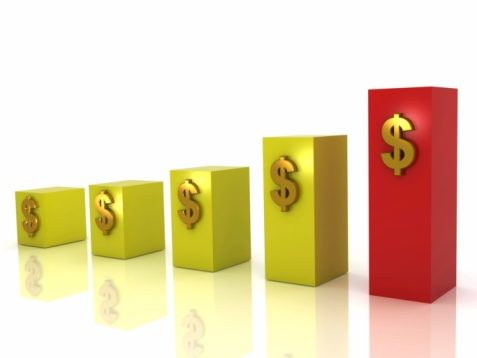If this economic downturn is like previous ones, the weak will get weaker while the strong get stronger.In recessions, companies with lots of cash tend to do better than companies with lots of debt, because they can step up to the plate to take advantage of fire-sale opportunities on undervalued assets like real estate.
If you are like most independent natural products retailers, your purchasing power will not increase dramatically during this time. You likely won’t be able to negotiate significantly larger discounts from your suppliers, for example. This means the playing field is set. If you are a smaller player, you will likely stay small for now. If you are a larger player, you may have a chance to get larger still. What does this mean for pricing?
For the typical independent, trying to match the pricing of larger competitors during a recession is bad idea. Why? Your rent, utilities and other costs of doing business tend to stay the same while sales are drifting lower. This “squeeze” can quickly make you unprofitable. If you step on the discount throttle, you only accelerate this tendency, voluntarily taking your profit dollars out of each sale. In a recession, you will NOT “make it up on volume,” meaning discounted sales will not increase enough to pay for your lost profits per sale.
While you should offer a healthy number of monthly specials, and pass along some or most of the promotional discounts you get from your suppliers each month, you should avoid installing an across-the-board discount or a “good customer” discount. An across-the-board discount simply robs profits from your bottom line, and good customers shop with you anyway, so you gain nothing—and, in fact, you lose.
But there is a way to help retain profits even in a recession. Take a look around your store at the slow-selling items. I am talking about low-profile specialty products that are not everyday shopping basket items. Shoppers know the price of a half-gallon of milk, a loaf of bread and a dozen eggs, but they do not typically know the price of, say, ricotta cheese, sore throat homeopathics or bulk granola. Customers probably won’t notice if you move your prices up by two or three percent on these under-the-radar items, but your bottom line will! More on pricing next month! WF
Jay Jacobowitz is president and founder of Retail Insights®, a professional consulting service for natural products retailers established in 1998, and publisher of Natural Insights for Well BeingTM, a holistic consumer marketing program designed especially for independent natural products retailers. With 31 years of wholesale and retail industry experience, Jay has assisted in developing over 800 successful natural products retail stores in the U.S. and abroad. Jay is a popular author, educator and speaker, and is the merchandising editor of WholeFoods Magazine, for which he writes a regular column called “Merchandising Insights.” Jay also serves the Natural Products Association in several capacities. Jay is next scheduled to speak at Expo West in Anaheim. He will speak at a seminar on “Global Business Program” on March 5 (8:30–5:45) and March 6 (8:30–5:45). He can be reached at (800)328-0855 or via e-mail at jay@retail-insights.com.
Published in WholeFoods Magazine, Feb 09










